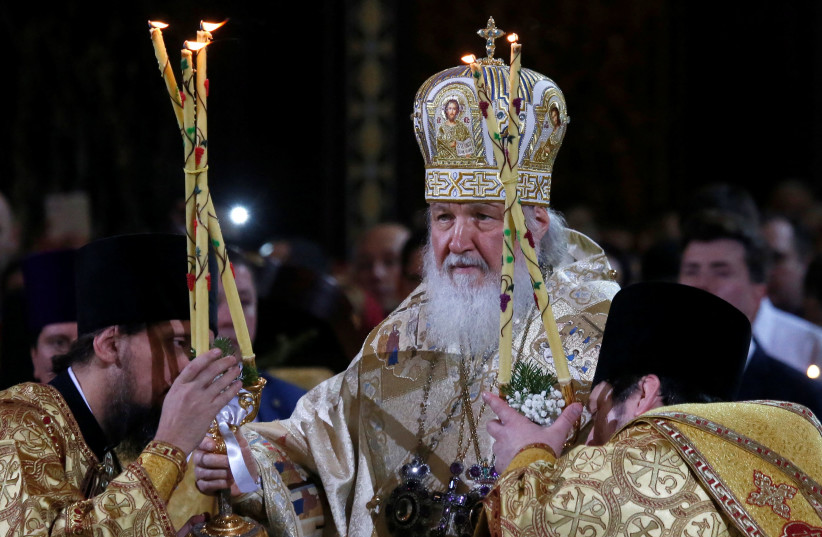The Kremlin said on Friday that Ukraine was "illegally attacking" the Ukrainian Orthodox Church (UOC) - which until recently accepted the authority of the patriarch of Moscow - adding that this confirmed the need for its "special military operation."
Ukrainian officials last week ordered the UOC to leave the monastery complex in Kyiv where it is based, drawing fierce condemnation from Moscow.
"With these illegal attacks on the church, the Kyiv regime is once again demonstrating its character, the very character we are fighting, the very character that we must stop through the (military) operation that is taking place."
Dmitry Peskov
"With these illegal attacks on the church, the Kyiv regime is once again demonstrating its character, the very character we are fighting, the very character that we must stop through the (military) operation that is taking place," Kremlin spokesman Dmitry Peskov told reporters.
Russia says one of the reasons why it sent its troops into Ukraine more than a year ago was to defend Russian-speakers and Russian culture from persecution.
Kyiv and its Western allies dismiss this as a baseless pretext for a war of aggression.

What's Ukraine's problem with the Ukrainian Orthodox Church?
Ukrainian President Volodymyr Zelensky and other Ukrainian leaders have accused the long-established Ukrainian Orthodox Church (UOC) of undermining Ukrainian unity and collaborating with Moscow.
Orthodox Christianity is the primary faith in Ukraine, and the Moscow-linked church has been in competition for worshippers with the independent Orthodox Church of Ukraine, founded after the collapse of the Soviet Union in 1991 but only recognized by church hierarchy in 2018.
Last Friday, authorities ordered the UOC to leave its base in the 980-year-old Pechersk Lavra monastery complex by March 29, prompting Russian Orthodox Patriarch Kirill to ask Pope Francis and other religious leaders for help.
The Security Service of Ukraine has since October carried out searches at UOC churches, imposed sanctions on its bishops and financial backers, and opened criminal cases against dozens of clergymen.
The UOC accepted the authority of the patriarch of Moscow until after Russia launched its full-scale invasion last year, but says it has now severed its ties with Russia and is the victim of a political witch hunt.
